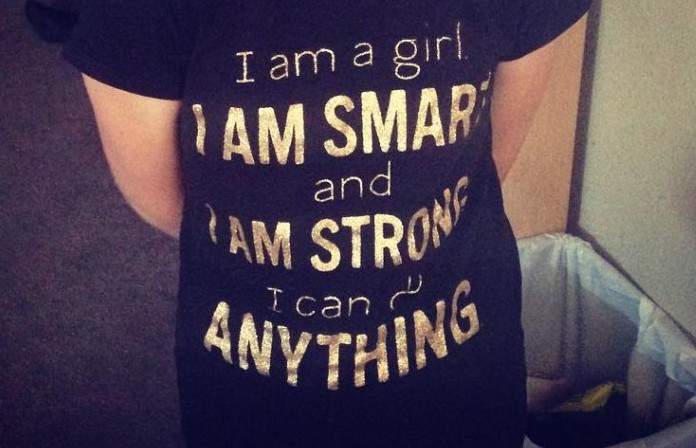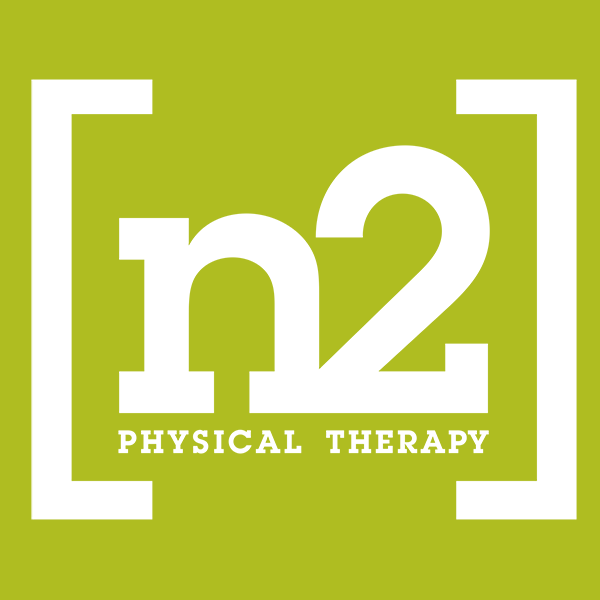While my girls and I were hundreds of miles from home visiting my parents, my almost-ten-year-old daughter got a fairly serious foot laceration. We took her to a local urgent care to have it examined; it’s always stressful seeking medical help when traveling, but we were fortunate to have prompt and effective treatment from the doctor and the nurse.
My daughter struggles with anxiety, particularly when it comes to fear of injury and safety concerns, and suffice it to say, tensions were high during the doctor’s appointment. It took all my emotional resources to stay calm and soothe her while she was screaming, writhing, and panicking for nearly an hour as the nurse and doctor tended to her injury, which was extensive. It was painful and frightening for her, and disorienting for me as I had to attend to what the doctor was telling me about the treatment and try to contain her hysteria at the same time.
The whole ordeal forced me to stay laser-focused on crisis management, and I have to say, during times of trauma when my children really need me, it is often easier for me to rise to the challenge than it is for me to stay calm during situations that are only marginally stressful like say, getting ready for school in the morning. I was proud of myself for remaining so level-headed and not losing patience or resorting to sobs myself.
But once the trauma had passed and I was safely home gulping a glass or two of wine to calm my nerves, I was able to better reflect on what happened in the examination room, and I recognized something that had been niggling at the back of my brain during the appointment that I was too distracted (rightfully) to acknowledge.
That evening we were beyond fortunate to have the most gifted nurse I have ever encountered. It was clear she had extraordinary gifts for dealing with patients in crisis, patients with severe anxiety. The way she talked to my child brought tears to my eyes. She engaged her; she calmed her; she honestly and levelly answered her questions; she validated her fear of the unknown; she told us about her job (she is usually a helicopter flight nurse ― talk about an incredible skill set); she shared stories about her nieces and her family; she asked my daughter questions about herself. Questions like:
What is your favorite subject in school?
What do you want to be when you grow up?
What are your favorite books?
What is your favorite thing to do back home in Colorado?
She treated her like a human being, one worthy of interest. This should not be so noteworthy.
Our doctor was a warm and engaging man in his late-fifties/early-sixties. He was chatty and friendly and did his best to keep my daughter calm when she was hysterical. But there was a marked difference in the way he interacted with her.
He asked her about her hairstyle.
He asked if she had a boyfriend, or liked any boys, and then proceeded to say “No internet or email or phone for you!”
He commented on her nail polish.
I get it. It’s an easy way to talk to little girls. And surely it should matter most that he was an effective practitioner and treated us with kindness, right? Of course it does. The doctor wasn’t cruel or blatantly disrespectful. But the subtle type of sexism we encountered is insidious, and harmful, and it’s a problem.
It’s supposed to be endearing. We’re supposed to feel flattered. And I’m the first to admit that I enjoy hearing compliments about my physical appearance; I take pride in it. But those compliments must be genuine with the intention of being empowering, rather than being diminutive. The doctor’s words did not fill me with tingly feelings on behalf of my daughter; they made my stomach twist.
Some of you may be reading this and thinking, “Oh for God’s sake, you’re being way too sensitive. Can’t you feminists let anything go?” And I have to say it: You’re part of the problem.
I didn’t say anything in the doctor’s office, mostly because I was focused on the important work of keeping my daughter calm and helping her treatment proceed smoothly. As it should be. But if it hadn’t been a crisis, would I have said, “You might want to ask her about her hobbies, whether she plays any sports or instruments, what she likes about school, instead of boys or her appearance.”? I don’t think I would. And that makes me part of the problem, too.
I wouldn’t have said anything because I wouldn’t have wanted to make the doctor uncomfortable. After all, he was a nice enough guy, and really, men from his generation don’t know any better, do they? It’s how they were raised; they don’t mean anything by it. Except. I don’t know about you, but I am tired of keeping my mouth shut and pretending not to be offended by subtle sexism because I’m afraid of shattering yet another fragile male ego. It’s not my fucking job.
But is it my job to be a teacher? To put the anger and indignation aside to gently guide a “benignly sexist” man into learning how to speak to my child? Would it be helpful for me to point him in the right direction patiently and kindly? At the very least, I can be a guide for my daughters, to help them to recognize when they are the recipients of sexist talk, to help them identify it when they see it on TV, hear it in the community, witness other females being talked down to, objectified, or diminished with sexist stereotypes. That is a role I can accept without hesitation.
Would a female doctor comment on a young boy’s pectoral muscles or ask him flirtatiously about the girls in his class? I doubt it. However, neither have we spent decades battling the objectification of young men.
The time for change has arrived. Right now we have a dangerously misogynistic presidential candidate who has transcended inappropriate, sexist remarks about women and has actually boasted about sexually assaulting them. And people (men and women alike) are done being quiet: the release of his recorded conversation was met with disgust and outrage, and the term “locker room talk” has come to represent something dangerous and unacceptable that is no longer to be tolerated in our society.
The 2016 Olympic games were another prime example of sexism in the media and a resulting public outcry. The citizens of our country are responding. The tide is turning. The time is now to get to the root of the sexism (and rape culture) that is the seedy underbelly of our country. It may seem like a far stretch to connect some harmless, sexist remarks made by a kindly physician to this larger problem, but it isn’t: they are undeniably connected.
I don’t want to believe that every single Baby Boomer white man is sexist and beyond help. I don’t like the idea of writing off an entire generation of people. But sometimes I wonder if it’s a lost cause to try and expect something better of the kindly older man who can’t seem to dig deeper than making references to my little girl’s appearance or her relationship to boys. Does this era of diminishing women just need to literally die out?
And while we’re on the subject of lost causes, I’m not sure I can let go of the constant loop in my own head about my appearance, my body, my skin, hair, and did I mention my body? I think it may be too late for me to escape the conditioning that comes with marinating for over three decades in images of unrealistic beauty ideals and messages about the value of women in our culture. But I want better for my daughters, dammit.

I don’t want men to comment on my girls’ hairstyles or cute clothes or tease them about having boyfriends. I want them to talk to them the way they would a boy that age, the way they should speak to all people regardless of gender. I want them to see her empathy and sensitivity, her love of dance, her quick wit and impressive vocabulary, her passion for Harry Potter, her blossoming piano skills, her ambitions for her 5th grade year, her devotion to her little sister and her loyalty to her friends. I want them to see a person. I want them to ask her about herself, not her fucking nail polish.
We can do better. Gen X men, I know you’re battling the social norms you were raised with and you’re trying harder than your fathers did. Keep at it. Grandpas, I see some of you learning as you watch your granddaughters making valedictorian speeches and competing athletically. (And I know many of you will be voting for our first woman president as well.) Millennial men, there are fewer excuses for you; be an example to your peers and your fathers. And mother-warriors raising little boys, I see you teaching the future husbands and fathers and doctors of the world. You are making a difference. Because it is no longer okay to witness and stay silent, or laugh along with misogynistic comments toward women. (Just ask Billy Bush.) We can do better.
I will do better, too. I will not be silent when men reduce my daughters to gender stereotypes. I will not put the feelings of men above the dignity my daughters deserve. I will not teach my children to hold their tongues when they witness sexism because they are afraid of hurting someone’s feelings.
I will be an example. I will be the badass helicopter nurse who asks girls the right questions. I will be braver, and better.
Connect with me on Facebook, and sign up for my latest posts in your inbox!
[jetpack_subscription_form]










Stephanie, I hear and feel each emotion you describe. I feel I must add that I had the same reaction when I took our son to adult care givers that did not understand that each child is a unique individual not just a set of gender stereotypes. I detested the following:
Do you have a girlfriend? Bet your phone is always ringing with calls from the girls.
Are you going to play football?
And the comments of height potential, looks and clothes.
Perhaps this type of pat conversation is more typical of people 50+. Whatever. It still needs to be changed. I admire you for carrying on the conversation. Eager to read the responses you receive on this topic!
PS…so proud of both Izzy and you! And Grammy. And the way Poppa provided background support 🙂 You are part of a unique, diverse family that models what it means to be family.
There’s a lot in here to think about. First off, well done for remaining so calm in a crisis. I can relate to what you say about feeing calmer in really difficult situations than in the everyday niggles. I’ve done that at times too.
How wonderful that nurse sounds, I particularly like that she validated your daughter’s fear of the unknown. It’s so important to validate children’s feelings (or anyone’s.) It gives them a sense of rightness, and courage to cope.
And then to the doctor. I don’t think a man in his late fifties/early sixties has not necessarily been raised to be sexist – some maybe are, but as many are not. I’m a generation or so older than you, and feminism was very much to the fore in the 1980s. It was different in many ways to today’s feminism, but an educated man would certainly have met feminist women. So his age is not really an excuse. I’m very glad you don’t want to write off an entire generation of people. And no, this era of diminishing women doesn’t just need to literally die out – it won’t die out as long as young men of 20 think it’s okay to rape unconscious women. Please don’t assume this has anything to do with age. There are sexist 20 year-olds and non-sexist 80 year olds.
It’s not even specific to gender – several years ago when I was a teacher, I overheard a female teacher talking to two girls around your daughter’s age. She was encouraging one of them to stop biting her nails – because when she grew up and got married it wouldn’t look good with her wedding ring! And at the clothes store where I work part time, we sometimes receive online feedback. In the time I’ve been working there, the comments about the female staff focus on their friendliness and helpfulness. The one about a young male colleague was the only one to refer to appearance. He felt quite flattered, which is interesting. I think perhaps there’s a different dynamic than when men comment on women’s appearance, but perhaps that’s not true. It’s still objectifying whatever.
I don’t think it’s ever too late to break free from conditioning. Noticing it, as you do, is the first step, and though it’s not always easy, it can be done. My father was 90 when he died and every day he was expanding, growing, letting go of habitual patterns. It was amazing to witness and so inspiring. That you are challenging assumptions means your girls will grow up more self-aware and able to fight their own corners.
Yes yes yes!! You expertly describe what I’ve felt for years! As a nurse, as a young girl and now woman, I have been dismissed, ignored, objectified! When a male physician describes the nurses, receptionist and medical assistants as “the girls up front” he or she is perpetuating a negative image of women. I see these strong young female athletes at the Olympics who’s worth is not their appearance or nail color but rather their hard work, fortitude and endurance. We, indeed, need to learn how to speak to our girls and how to stand up to and teach those that don’t know
how!!!!!
Thank you SO much for this! Yes, we can and should do better for our girls — and for society in general. It’s one of the reasons our August newsletter focuses on Girl Power. We can and should raise our girls to embrace their abilities to be risk takers and change makers — who are also kind and confident. (And while we’re at it, we need to allow our boys to be compassionate and caring and not demand they suppress their emotional side.) As much as we want to hope society will improve it cannot improve without the small changes made on big-hearted conversation and example at a time. Thanks again for your wise words.
My husband was born in 1931, and he would never have spoken to any little girl the way that doctor did yours. Age is no excuse, nor even a decent reason.
I also get that irritated feeling when I hear a patronizing tone coming from an older man to a younger girl/woman. I don’t think there’s anything wrong with gently steering the conversation to other things your daughter does well. It probably doesn’t warrant a full-blown feminist lecture, but subtle cues can definitely be picked up on.
I get you Stephanie. I had a similar experience when my 3 year old son sustained a forehead injury last year. I was surprised at myself, at how calm and together I remained on the outside and was able to manage my emotions on the inside. I realised that “I am strong”.
I encourage my 9 year old to internalize ways of being smart, strong, and build up confidence. I believe it starts from us and we are examples to our children, nieces, students, any child we interact with.
Yes, our girls can look nice and fashionable and portray beauty, and so can we, but we are much more than that, we are all this plus brave and courageous.
I enjoy reading articles like this because I have always believed since I was little that we can do anything we put our minds to. I have been around for four decades and a half and hope to be around for much longer so I can be a voice too Stephanie. Thank you for speaking your mind Stephanie and sharing your experience. We are not alone ladies:)